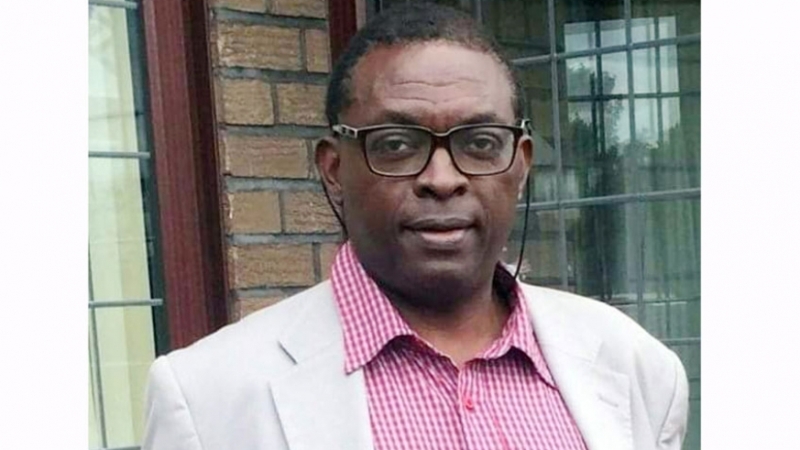Rwanda requests arrest of Sebatware

The National Commission for the Fight against Genocide (CNLG) is calling for the arrest and trial of Europe based political leaders of anti-Rwanda militia operating from DR Congo who continue to threaten the peace and security of the region.
Cases of the respiratory illness were first reported in the Wuhan City of China late last year and, as of this week, more than 200 people across six cities are said to have been infected, while other cases have been reported in South Korea, Japan, and Thailand.
Chinese official investigating the illness have said that the disease can spread from person to person but can be halted with increased vigilance.
In a communiqu� issued on Tuesday evening, the Ministry of Health issued an advisory concerning the virus, requesting the general public especially travelers to Asian countries to take special preventive measures.
The measures include avoiding animals (alive or dead), animal markets, and products that come from animals (such as uncooked meat); avoiding contact with sick people; washing hands often with soap and clean water (use alcohol-based hand sanitizer in case they don�t have access to clean water and soap).
One such person, the commission noted in a statement released on Tuesday, is Marcel Sebatware, a Genocide convict based in Belgium and is a commissioner of the FDU-Inkingi and a leader in South Africa-based fugitive Kayumba Nyamwasa�s P5 coalition.
�Belgium should comply with its international obligations to extradite Sebatware Marcel to Rwanda instead of letting him to continue to spread his hatred with impunity,� the CNLG statement reads in part.
Sebatware is one of the founding members of a radical FDU-Inkingi group in Belgium, whose president, Victoire Ingabire Umuhoza, was sentenced in Rwanda for genocide denial and incitement to hatred.
�Sebatware is also one of the leaders of terrorist groups grouped together in an organisation called P5 which pursues genocidal and denial objectives,� reads part of the CNLG statement.
What is more appalling, the Commission noted, is that Sebatware is a notorious genocidaire.
�He was tried and found guilty of genocide in Rwanda by the Gacaca courts, which makes him a fugitive criminal who has no right to do anything political and no less support for a criminal group like P5.�
�Since his exile in Belgium, Marcel Sebatware has been one of the extremists who hide behind political actions to hide his criminal role in the genocide committed against the Tutsi.�
The negative forces of Rwandan origin based in eastern DR Congo sprouted from the forces and militia groups that crossed into the neighboring country after shedding the blood of more than a million people during the 1994 Genocide against the Tutsi in Rwanda.
In the past year, however, dynamics shifted when the Congolese government resolved to get rid of them and subsequently followed through with an on-going military offensive that has seen hundreds sent packing to Rwanda and others killed.
The Commission said the Congolese government �has made commendable efforts to put an end to the terrorism of armed groups� which, since 1994, have been spreading terror in its territory.
Several of their military leaders killed by the Congolese army, including their leader, General Sylvestre Mudacumura.
However, it adds, most of their political leaders who support them live quietly in the West and continue to support criminals living in the DR Congo with impunity.
In the early 1990s, Sebatware was the General Manager of the cement plant (CIMERWA), located in former Bugarama Commune in the current Rusizi district.
Sebatware, brother-in-law to Gen. Deogratias Nsabimana, the former chief of staff who signed a hateful document in September 1992 identifying the Tutsi as enemies of the country, was a member of the extremist Coalition for the Defense of the Republic (CDR) party.
The Commission highlighted how, among others, upon his appointment as head of CIMERWA, Sebatware immediately appointed in positions of responsibility people from northern Rwanda with whom he shared Tutsi hatred.
�It was a general strategy used by the regime to place Hutu extremists in key positions of the administration, including state-owned enterprises and tea factories in preparation for the genocide.�
Also noted is how Sebatware was a very influential person, not only in Bugarama but also at the level of Cyangugu Prefecture, where he participated in meetings in which the Genocide was planned.
According to CNLG, witnesses affirm that if Sebatware had not supported the genocide committed against the Tutsi in CIMERWA and its surroundings, there would have been a large number of survivors. Many refugees in the factory, it is noted, were hunted by the killers until they were flushed out and massacred �with his blessing.�
Sebatware also participated in the recruitment of Interahamwe militia, organisation of their paramilitary training, their equipment and the preparation of lists of Tutsi who were to be systematically massacred.
According to CNLG, such training was regularly organized on the football grounds of the cement factory CIMERWA.



Leave a Comment